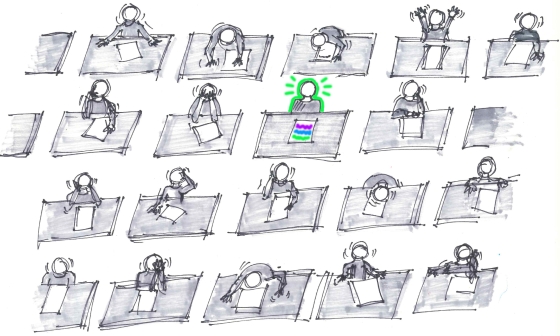Are Exam Previews Right for You?Knowing that an instructor's time is a precious resource, we offer the following guide to help you decide whether investing your valuable time in exam previews is likely to be transformative for you and your students. There are two fundamental questions to consider. First, are exam previews in general likely to be helpful? Second, if the answer to #1 is "yes," are your biggest assessment goals a good match to Public Exams, Test Question Templates, or both about equally? (1) Which of the following statements, if any, do you agree with? A. Administering and/or grading tests is my least favorite part of teaching. B. I want my tests to assess higher-order thinking, but I find it hard to create such tests. C. To preserve the integrity of my tests, I provide only limited information about them, but I am uncomfortable with this secrecy. D. Many of my students complain that my tests are unfair and/or too hard. E. I want to reduce my students' anxiety about the uncertainty of what will be on of my tests. F. I want my tests to be more equitable so that they reward understanding rather than test-taking ability. If you agree with three or more of these statements, you may be a good candidate for exam previews! In this case, you may wish to consider whether one type of preview (Public Exams or Test Question Templates) is more likely to meet your greatest needs. The embedded video and text below may be helpful in this regard. (2) While Public Exams and Test Question Templates share important attributes, their relative emphases are a bit different. Public Exams may be ideal for you if your chief assessment goals include one or more of the following:
Test Question Templates (TQTs) may be ideal for you if your chief assessment goals include one or more of the following:
For more information about this project, please email us at exampreviewresearch@gmail.com. 
|